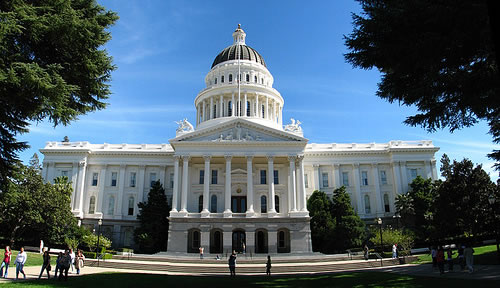Journey to Pass a California State Budget Bill

California lawmakers are set to vote on and pass the state's budget in Sacramento today. IVN has previous covered the obstacles and drama surrounding the budget process in California. Today, June 15th, marks the state's constitutional deadline to pass a state budget bill. If lawmakers fail to act today, their legislative pay will be withheld for every day it is late. But how aware are you of the California state budget bill's veritable journey? We've simplified the state budget process into ten steps, which when considered perhaps answers the question, "What's the hold up?!"
1. Between June and August of the previous year, state agencies and individual departments develop budget proposals that increase or decrease their existing levels of funding and service. After these budget changes are decided, proposals are prepared they are sent to the Department of Finance for review.
2. The Department of Finance (DOF) is responsible for reviewing and analyzing all the budget proposals submitted by different state agencies and departments. The DOF then prepares an expenditure plan based on these proposals for the Governor’s approval.
3. The Governor is responsible for evaluating the DOF budget proposal and then provides the “Governor’s Budget” to the Legislature and public before January 10th of each year.
4. The California State Legislature then takes the Governor’s budget and introduces them as two identical budget bills in each house. In both the State Assembly and the State Senate, they will be considered and edited individually.
5. The Legislative Analyst’s Office, a non-partisan review agency of the Legislature, then conducts an extensive analysis of the budget bill and provides recommendations.
- Budget subcommittee hearings in the State Assembly and State Senate commence for each individual section of the California state budget bill as soon as an analysis has been provided.
6. The Assembly version of the Budget Bill starts out in the Assembly Budget Committee, and the Senate version starts out in the Senate Budget and Fiscal Review Committee.
- These two committees are responsible for dividing up the budget bills by subject and assigning them to the appropriate budget subcommittees for public hearings.
- Assembly Budget Subcommittees include Health and Human Services; Education Finance; Natural Resources and Environmental Protection; State Administration; Information Technology and Transportation.
- Senate Budget and Fiscal Review Subcommittees include Education, Resources, Environmental Protection, Judiciary and Transportation; Health, Human Services, Labor and Veterans Affairs; Legislative Executive Public Safety and General Government; Energy, Executive, and Off- Budget Fiscal Issues
- Agency representatives, legislative analysts, interest groups, and citizens have a chance to offer input and lobby legislators as the budget bill moves through the committees.
7. In May, California's Governor releases an updated version of the previously submitted Governor’s Budget from January, meant to reflect changes in state revenues and spending since the original release, as well as new projections. This is known as the "May Revise".
- The Legislature waits for the May Revise before making any final decision on the Budget Bill already traveling through each house. The May Revise is used to create amendments to bills being heard in each subcommittee.
- The Governor typically holds a series of closed door “Top 5” meetings with leaders from both houses and both parties in order to negotiate the final budget. After a deal is crafted, party leaders take the changes back to their respective caucuses and begin to line up votes.
8. After subcommittees have an opportunity to amend and hear their respective budget bills, a report is then sent to the full budget committee in each house. The full budget committee in the Senate and Assembly will then adopt these reports into its revised Budget Bill and send it to the floor of each house for amendments and votes.
9. Each caucus meets prior to the Budget Bill hitting the floor for a briefing on final content. A full floor vote follows. The State Senate and State Assembly will then both send their respective versions to the other house and a final version is adopted. June 15th is California’s constitutional deadline for passing the budget through both houses.
- If the budget bill requires changes to existing law, trailer bills are introduced and voted on. This typically occurs around the same time as the budget itself is being voted on.
- A super majority vote of two-thirds is no longer required to pass the budget in California due to a 2010 voter-approved ballot proposition. A super majority vote is still needed when pertaining to tax increases.
- If a budget is late, legislators lose their pay and compensation for each day extended past June 15th, due to the same voter-approved ballot proposition.
10. Once the Governor receives the final budget from the Legislature, he has twelve (12) working days to sign or veto the California state budget bill. The Governor may also utilize line-item veto items within the budget before signing it. The Legislature will still have the power to override line-item vetoes with a super majority vote in both houses.After being signed by the Governor, the budget goes into effect on July 1st. This process impacts all fiscal transactions of the state as the fiscal year runs from July 1st to June 30th.




